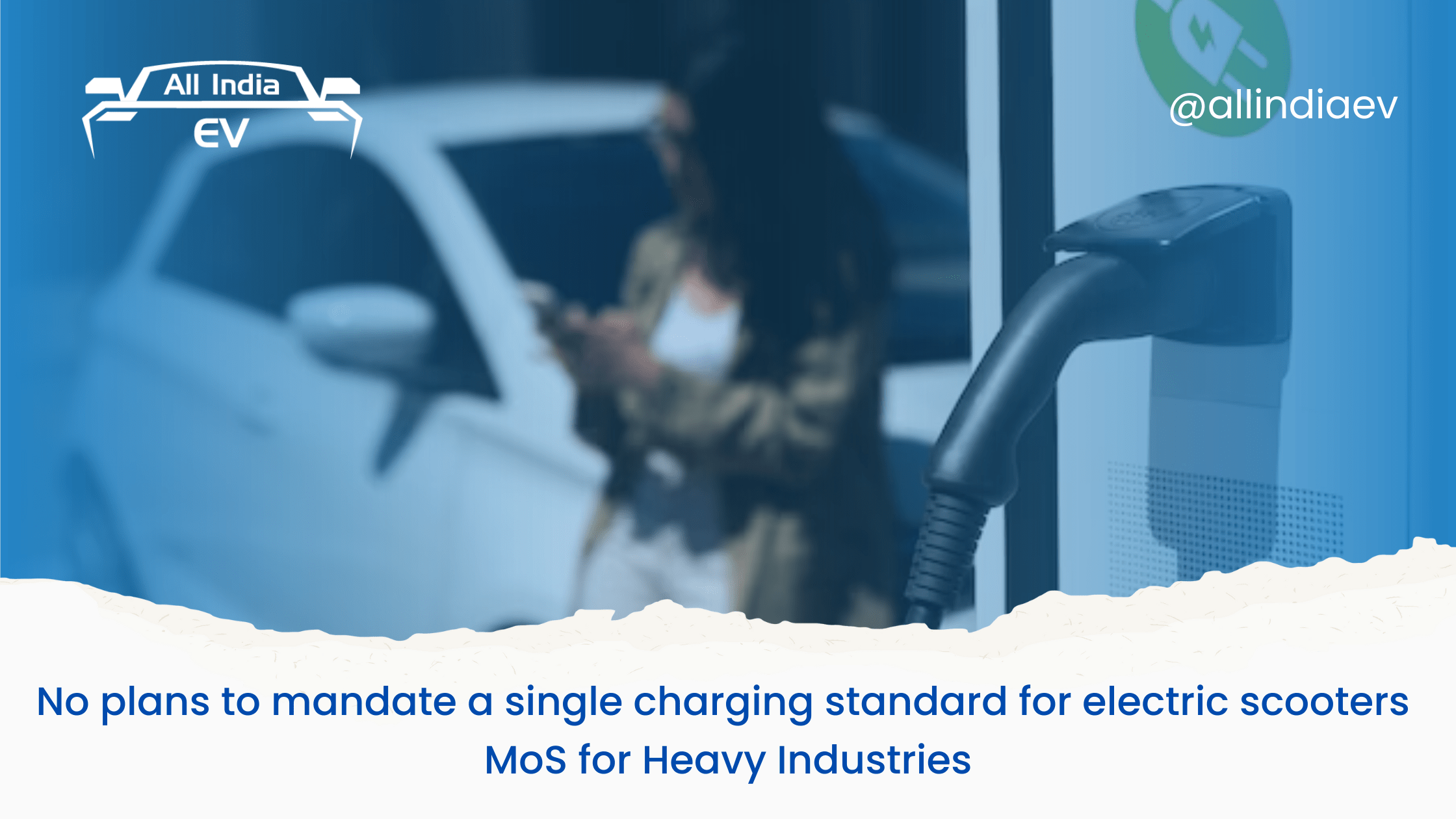
what’s happening with single charging standard in India?
India is one of the fastest-growing markets for electric vehicles (EVs), especially for light electric vehicles (LEVs) such as scooters, bikes, and rickshaws. However, the country does not have a uniform standard for EV charging connectors, which poses a challenge for the interoperability and scalability of EV charging infrastructure. So what’s happening with single charging standard in India, lets have a look.
India’s Leap Towards EV Charging Standardization: A Game-Changer for Two-Wheelers
The Ministry of Heavy Industries and Public Enterprises, which is responsible for promoting the adoption of EVs in India, has clarified that it has no plans to mandate a single charging standard for electric scooters.
The ministry said that it is up to the EV manufacturers to choose the charging standard that suits their products and customers.
The Bureau of Indian Standards (BIS) has approved an indigenously developed AC and DC combined charging connector standard for LEVs, which is the first of its kind in the world.
This standard, ISI7017 (Part 2 / Sec 7): 2023, has been developed through collaboration among NITI Aayog, the Department of Science and Technology, electric two-wheeler maker Ather Energy, and various other government and industry stakeholders.
The combined charging standard is attractive because it can be used by different kinds of EV models and charging infrastructure providers.
It also allows the users to use AC as well as DC inputs and can handle up to 350kW of power supply for batteries ranging from 48-72 V.
However, this standard is not mandatory for EV makers to follow, and some of them have their own proprietary charging standards.
The lack of a common charging standard can lead to range anxiety among EV users, who may not find compatible charging stations for their vehicles. It can also hamper the faster adoption of EVs, as it creates barriers for the entry of new players and the expansion of existing ones. Therefore, some experts have suggested that the government should intervene and create a national standard for EV charging, similar to the mobile phone charging standard that was adopted in 2011.
The government has also initiated separate projects for battery swapping standards for LEVs and buses, which will cover the form factor of the battery pack, inter-operable connection systems, communication between the battery management system and the EV and charging station, and network management. Battery swapping is another option for extending the range and reducing the charging time of EVs, especially for public and shared transportation.
India’s EV charging standardization is a work in progress, and it requires the coordination and cooperation of multiple stakeholders, including the government, the industry, the academia, and the consumers. A harmonized and interoperable charging standard can boost the confidence and convenience of EV users, and accelerate the transition to a cleaner and greener mobility future.
